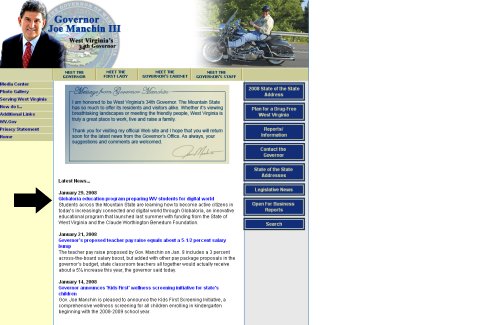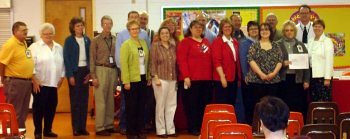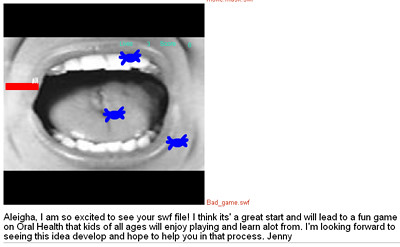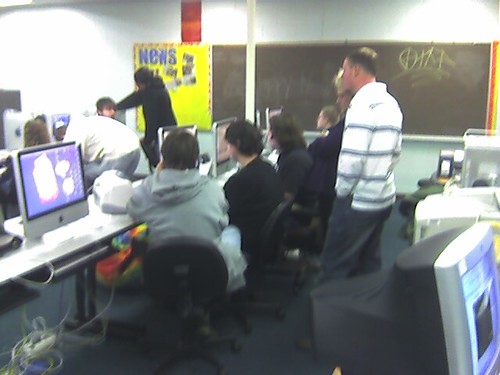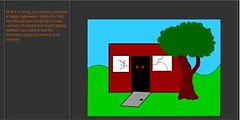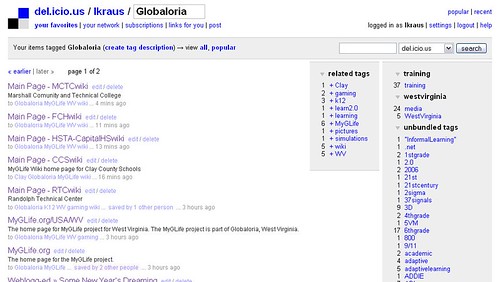As the new Program Manager of Globaloria-WV, I have the wonderful opportunity to build an online community to support our project. I thought it would be great to interview my new (boss) colleague and get some answers to just what Globaloria is and how it is going to impact education in
West Virginia. For those of you who are not familiar with Dr. Caperton I provided a brief bio on her incredible career.
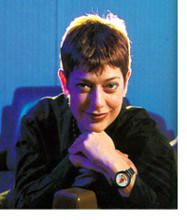
Dr. Caperton is a pioneer in the utilization of new-media technology for promoting creative learning, democracy and globalization through Constructionist Learning theory. She founded the World Wide Workshop for Children’s Media Technology & Learning in 2004 to leverage her unique blend of award-winning research, business acumen and leadership in
new-media projects around the world. Throughout the 1980s and 1990s, Dr. Caperton conducted breakthrough research as a Research Scientist at the MIT Media Lab. In 1995, she implemented her research when she founded MaMaMedia Inc. and launched MaMaMedia.com, ConnectedFamily.com, and Papert.org. Dr. Caperton was honored by the Network of Educators in Science and Technology and MIT in 2002 “for devotion, innovation, and imagination in science and technology on behalf of children and youth around the world.”
The Nine QuestionsLet’s start with your current organization. Tell us a little bit about the World Wide Workshop?Well, first let me thank you for your efforts on the new Globaloria-WV blog. The World Wide Workshop is an educational organization dedicated to conceptualizing and developing applications of Internet media technology to enhance learning, creativity and understanding among children and youth in developing communities around the world. We invent and demonstrate new ways of using Internet media technologies and online communities to put young people in charge of their own learning -- in and outside the classroom. We are based in New York, but working on projects throughout the world. You can learn more at our website. (
http://www.worldwideworkshop.org)
As the Founder and creator of the vision, what was your inspiration for Globaloria and the MyGLife Project?Well, since the summer of 2006 we have been developing the Globaloria program, and testing an innovative open-source Web 2.0 platform and curriculum called MyGlobalLife.org. We had in mind to create a powerful social network for teaching and learning, based on research and practice about the benefits of youth-led learning through game design and programming. We also wanted our social network’s members to be super-focused on learning how to create interactive games for educational purposes and social change.
The background on Globaloria is that it is based on a rich history of field building in the area of Digital Media and Learning. Its foundation is my earlier work with Seymour Papert at MIT Media Lab in the 1980's where we established the value for ‘children as software designers’ for educational purposes. Then we leveraged the work we did in the 1990's during the 'first Internet era' to launch MaMaMedia (www.MaMaMedia.com). It was the first creative website for young children that won numerous awards for its participatory approach to media (children were educated to use the Internet for making media and being imaginative and not simply consuming media and information). In the first decade of the 21st century, we are aiming once again to establish a new sub-field in Digital Media and Learning. We are creating an open-source online studio, a virtual community of practice, for youth to become members of a virtual network of young designers of software applications and web-games for social change and educational purposes. This time around, we are using the most contemporary Web 2.0 networked media technology to make this happen.
Given that Globaloria is “global” project why did you choose West Virginia? We chose West Virginia based on the opportunity presented by its people. Last year, the Governor and the First Lady (with the help of their advisor Nancy Sturm) looked for innovative programs that integrate the newest technologies into innovative learning. They were also interested in the role of games in education. Our program was different because it is not just about how to use existing games for education (games for science or mathematics learning), but rather – how the making of games, designing and programming games, can be in itself an educational process of the best kind. The First Lady who is an excellent educator and knows a great deal about learning theory got all excited. She got it. It’s an experiment with a huge vision. I admire that a Governor and First Lady have the vision and courage to try something like this on a state-wide scale.
West Virginia needs to figure out how to improve its education and engage its students and use technology smartly, as well as how to grow new capabilities in the state for its economic development and finally how to keep its youngsters in the state. We hope that a program like Globaloria will provide an answer to all that – 1) engage WV youth in the most advanced form of learning, 2) provide opportunities for internships and employment via then Internet which is getting very popular worldwide, 3) contribute to the state’s economic development in the long term, and 4) provide young citizens jobs that allow them to stay in the state. Why should we hire game developers and software developers and creative digital designers from India or China if we can employ thousands of brilliant and dedicated West Virginians?
How is MyGLife any different then other project-based learning initiatives?The value of MyGLife starts with having people buy into the theory first – the
constructionist learning theory. We want educators to think and reflect on their own personal learning experiences – instances of their own creativity and personal histories. They should ask themselves, “What have been my best learning experiences?” The answer is usually a teacher or a parent that made them active learners, where they created something of their own, worked on a complex project, worked on something they invented and were passionate about. This is what
MyGLife is based on and why it is a model for developing meaningful learning opportunities. But we add to this theory the new world of the so called ‘social networking and Web2.0.’ As students work on their games, they are also connected in a network and can share ideas and exchange media. The learning theory is not new. But executing it on a state-wide and global network, that’s new.
What is the relationship between MyGLife and the 21st Century Skills that teachers have heard so much about? There are many similarities. However, I believe we are taking it a few steps further. The Globaloria approach is driving students into greater complexity, and self-learning to create within an open-source online studio, a virtual community of practice. We literally ask youth to become digital designers of web-based software applications and games for social change and educational purposes -- using contemporary Web 2.0 networked media technology. This means there is a direct relationship with the identified 21st Century skills, but the way they called “21st Century Skills was schoolified – many teachers stop at surfing or doing research using Google.
Our Globaloria students are doing all that but also think about an original idea, that evolves into a complex, long-term project that they develop individually and in teams, over a long period of time. They learn to use media wiki and blogging and they drive the entire experience. It’s hard, because most of the support they are getting is virtual – and they complaint at first. But this is something they must learn in the 21st Century. This is the future of work too. Companies are becoming global and often employees have to learn new skills through virtual self-learning. They also have to work in global teams and publish daily progress and perform digitally. We hope that our program will help push the definition of 21st Century skills forward to be more connected to the necessities of the real professional world
A question that I know that answer to, but need to ask, do students really learn to make games?Absolutely. They each use their own computer, and they are all connected to the Internet, it’s now possible to let kids free in a big virtual world where they can choreograph their ideas, animate and create things, and do things that are really rich in concepts. This approach leads to constructing with digital objects, playing with digital media on the computer in order to develop creativity and imagination as well as entrepreneurial skills. The
MyGLife curriculum facilitates for students, the skills to design an educational game, create the digital media, and work collaboratively through the platform. We also encourage the students to design and develop games that will have a positive impact in their communities.
So much has been discussed on the web about web2.0 and learning, do you think that it is hype or do you feel it is an important to examine?While all new technologies have some level of hype, when implemented through a research-based framework, certain web2.0 technologies can provide the tools that enable constructionist learning with in a networked context – that’s powerful. Here we are, a team of experienced professionals in NYC, connecting daily to educators and students in rural WV. To address the best way to implement these new technologies we articulated what constructionist learning is all about in simpler and more commercial terms. We emphasize over and again that the most important skills for the new millennium are “
the three Xs:” eXploring, eXpressing and eXchanging ideas by using the new digital media. The first X,
eXploring, takes advantage of people’s natural passion for learning and discovery. When a student discovers for herself rather than being told is when learning resonates. Games and simulations are an ideal learning environment for discovery. The second,
eXpressing, is learning how to use a vast palette of tools to become designers, builders and architects of our own ideas. Youth love using digital media to become versatile and effective communicators of ideas. The third X,
eXchanging, is the sharing of ideas with others. It is my belief that real learning occurs best within a networked, social context, in an environment where you can exchange ideas, ask questions and work with peers and experts. Moreover, through eXchanging, young people who are used to be rather disengaged in today’s schools, become more active participants in their learning, not passive absorbers of information.
So to re-address the question, when web2.0 technologies can be used to enable the three X’s they can be powerful learning tools. We are continually examining what the best tools and methods are for the students to learn in this style.
What is your long term vision for this project?Our short-term goal for West Virginia is to identify several groups of educators and students (at the middle school, high school, and college level) who are willing to engage and become active, contributing members of the Globaloria community. Wes Virginia will become the flagship state, the model. Our long-term goals for the Globaloria project are many. One is to involve several other disadvantaged, underprivileged, and third-world communities both in the United States and around the world. In the next 3-5 years we will form new partnerships and raise the necessary funding for further developments and testing of our Web 2.0 platform and social network and integrate various sets of community-sensitive, virtual learning tools (e.g., websites, wikis, blogs, games, tutorials) to support further use in WV, as well as other states and nations worldwide. Eventually we hope to build multiple platforms that will be like “starter kits” and a series of discipline specific networks -- one network for youth designing global games for social change and education www.MyGLife.org; one network for science education – www.MySLife.org – where young people build simulations and games for science; and one for health – MyHLife.org - where youth can design games for learning about health-related topics from what is HIV and Malaria to the life cycle of the mosquito.
What do you think will be or could be the long term impact of this project on West Virginia?We believe that a project of this kind can greatly contribute to the future employability of youth such as in the case of West Virginia, and therefore to the economic development of the state. Our dream for Globaloria graduates is to get jobs online as wiki-based software developers, game or simulations programmers, and technical managers -- do it virtually much like we run this network and other projects we work on as professionals these days – and they will not need to leave WV! If this project succeeds as planned, West Virginia could become a model state for it’s educational innovation with technology, and at the same time a model for using technology for entrepreneurship development, economic development and for contributing to our nation’s and the world’s innovative economy at large.
Final Note: I just want to thank Idit for taking the time to share with me and create this post. If you have any questions about our project, the approach, or how it will impact WV leave a comment, email me, or engage in the community.
